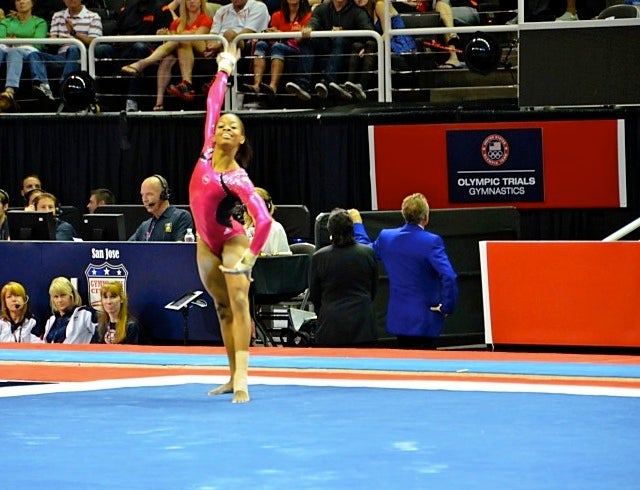It’s just not fair. With the Olympics going on, it’s really hard to stay focused on real news. Sure, everything from rotting trees to dam-formed reservoirs have been found to cause global warming this week. And the U.S. began efforts to clean up Agent Orange contamination in Vietnam. But it’s not easy to pay attention to the real world when the New York Times is and Usain Bolt is making history.
Granted, the three-way love-fest between USADA, WADA, and the UCI has captured my attention, but I’m a cyclist. So it’s not fair to ask you to care. But we must admit, the whole situation is rather interesting: Is the UCI trying to protect Lance? Does it have anything to do with a
Just because we cannot take our minds off the Games doesn’t mean we have to be obsessed with sports only. Because when Gabby Douglas wins the overall (and Fox calls her unpatriotic for wearing pink) it means something—for white and black Americans. Plus, women have scored more medals for the U.S. than the men have. Perhaps that’s a start to more equitable coverage.
The Olympics are a blast to watch, and they throw life into perspective. While it took $2.5 billion to launch the Curiosity Rover, the Games came with a $15 billion ticket. : Different funding sources, goals … hard to compare economic v.s. scientific outcomes, but that’s still a huge difference. One wonders what kind of world we’d live in if the numbers were reversed.
And now, for the top stories you should be reading this weekend:
Sweaty Olympians probably stick. But what about the rest of us? Yes, if you believe the advertisers who finally convinced Americans that we smell bad.
“The financial success of Young’s strategy to exploit female insecurity was not lost on competitors. It didn’t take long before other deodorant and antiperspirant companies began to mimic Odorono’s so-called 'whisper copy,' to scare women into buying anti-sweat products. (It would take another decade or two before the strategy would be used to get men to buy deodorants and antiperspirants.)”
Even if you spend more time outside than at your computer, you probably tweet the occasional photo or check Gmail. That’s great, until somebody hacks into your account, remotely wipes your computer, and steals your digital life.
“In the space of one hour, my entire digital life was destroyed. First my Google account was taken over, then deleted. Next my Twitter account was compromised, and used as a platform to broadcast racist and homophobic messages. And worst of all, my AppleID account was broken into, and my hackers used it to remotely erase all of the data on my iPhone, iPad, and MacBook.”
Head to your local chain restuaruant and you’ll likely find a high level of standardized service and food. But at your local hospital? Medicine has something to learn from fast food about quality, cost control and innovation.
“I’d come from the hospital that day. In medicine, too, we are trying to deliver a range of services to millions of people at a reasonable cost and with a consistent level of quality. Unlike the Cheesecake Factory, we haven’t figured out how. Our costs are soaring, the service is typically mediocre, and the quality is unreliable. Every clinician has his or her own way of doing things, and the rates of failure and complication (not to mention the costs) for a given service routinely vary by a factor of two or three, even within the same hospital.”
Athletes have coaches, but what about surgeons? Sure, it’s a year old, but with the Olympics on our minds, the notion that doctors might benefit from coaches is one to consider.
“Professional athletes use coaches to make sure they are as good as they can be. But doctors don’t. I’d paid to have a kid just out of college look at my serve. So why did I find it inconceivable to pay someone to come into my operating room and coach me on my surgical technique?”
Since Solyndra, solar power has been eyed with suspicion. But some companies are making it work in a new way by leasing rather than selling panels to residents.
“Though the failure of Solyndra has dominated the political and social discourse around solar power, the reality of the industry—as evidenced by the enormous investments that companies like Google and Bank of America are making in residential solar power—is that it has rapidly become a smart, practical and profitable investment. Despite a lack of widespread acceptance, the market is growing and the competition is getting tight.”
And for an incredible infographic on Olympic bodies past and present, be sure to check in with .


